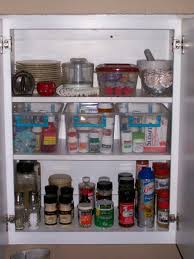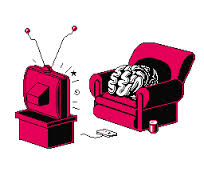Here’s most of an email I recently received:
> Subject: why does the addiction resurface when we least expect?
> Marc,
>
> I really enjoyed your memoir. In so many ways I feel I can relate….
>
> So… Here’s my question…
>
> Why, after being sober for 7-months, did my craving for alcohol become
> that much more intense? Gave up alcohol in August 2013… Started
> drinking again in February 2014… It’s like….. thought I was on my
> way toward a happy peaceful sober life, and then, BAM! Drinking more
> and in ways that I see are perhaps more self-destructive?
>
>
> What’s up with me?
Here’s most of my reply:
Hi _____, Thanks for your note. I find it thought provoking, and really very moving, partly because I had similar experiences when I was taking drugs. Also, your note goaded me into writing this long-overdue post.
This is what happened to me: In 1979 or so, after several years of struggling to abstain and remain abstinent, I finally quit “successfully” for a few months, and then BAM! — I fell back in. Just as you describe. I had quit taking any and all opiates in late December, at the same time as extricating myself from an extremely painful marriage — many strings, much guilt — and making binding promises to myself. Now I was living in my own apartment, I’d given up trying to influence my wife’s state of mind, I was getting good grades in my first year (of graduate psychology), and I was thoroughly delighted to be “unhooked” physically and, so it seemed, psychologically.
 Then I went to a party at someone’s home in April, about four months later. I went to the bathroom to pee, and while standing in front of the sink I impulsively opened the medicine chest. And there, staring me in the face, was a large-size bottle of Tussionex — about 1/4 used up, so…. ideal for taking a few sizable gulps without anyone being the wiser. (Tussionex is a cough medicine whose main ingredient is hydrocodone.) Soon after that night, I began using again regularly, and breaking into medical offices again regularly. I guess I was so upset with myself for ending my fast that…well you know how that one goes. Then, one night, three months after that, I climbed out of the basement window of an enormous medical centre, my pockets stuffed with drugs and needles, and walked directly into the waiting arms of several officers of the law. Ironically, I was working as a psychology intern at the time. In other words, I was supposed to be one of the healthy ones. Six weeks later I was given a suspended sentence. But far worse than that, I was kicked out of graduate school, essentially black-listed from all psych departments in Canada, at least for a few years, and I ended up washing windows and house painting to make ends meet.
Then I went to a party at someone’s home in April, about four months later. I went to the bathroom to pee, and while standing in front of the sink I impulsively opened the medicine chest. And there, staring me in the face, was a large-size bottle of Tussionex — about 1/4 used up, so…. ideal for taking a few sizable gulps without anyone being the wiser. (Tussionex is a cough medicine whose main ingredient is hydrocodone.) Soon after that night, I began using again regularly, and breaking into medical offices again regularly. I guess I was so upset with myself for ending my fast that…well you know how that one goes. Then, one night, three months after that, I climbed out of the basement window of an enormous medical centre, my pockets stuffed with drugs and needles, and walked directly into the waiting arms of several officers of the law. Ironically, I was working as a psychology intern at the time. In other words, I was supposed to be one of the healthy ones. Six weeks later I was given a suspended sentence. But far worse than that, I was kicked out of graduate school, essentially black-listed from all psych departments in Canada, at least for a few years, and I ended up washing windows and house painting to make ends meet.
So what goes on when we are sailing, in the clear for months, and then BAM! — we suddenly find ourselves in the throes of our addiction, as bad or worse than ever?
I figure the two most important brain changes that go with addiction are (1) the rewiring of the striatum, from ventral (nucleus accumbens) to dorsal striatum, and (2) the rewiring of prefrontal areas responsible for self-control, decision making, and so forth. The striatal change takes drug-seeking from an impulse to a compulsion, so that the behaviours we engage in to get/take substances or engage in other addictive acts become at least partly automatic. This is an example of classical (Pavlovian, i.e., stimulus-response, i.e., S-R) conditioning. Stimulus now leads directly to response. The prefrontal change blunts our capacity to think flexibly and switch goals as needed, so that addictive goal-seeking is no longer harnessed by cognitive control.
If those two brain changes are central to addiction, then ongoing brain changes in both systems — essentially in the opposite direction — are probably central to recovery. We recover some cognitive control, and those prefrontal networks become more efficient once more, but slowly, and mostly because we work on it like hell. We practice cognitive control daily, and thereby awaken the synapses that got too sleepy. In fact, a study I recently reviewed on my blog shows that we grow extra synapses in cognitive control areas after several months of abstinence. These function like a suit of armour that protects us from addictive impulses….until the automatic S-R response finally weakens.
But here’s the problem: On any given occasion, the cognitive control network is slower to power up than the impulsive/compulsive network, and this is especially true while the cognitive control network is still being “tuned up” (so to speak) during the recovery phase. So the synapses in the striatum and its close neighbour, the amygdala, get activated extremely rapidly by drug cues — even during recovery — compared to the prefrontal control networks. Approximately one-fifth to half a second faster (my speculation based on EEG findings). So these “control” networks (which Kahneman refers to as System 2) are not only intrinscally slower to begin with, they’re even slower (and more deliberate) than usual because they’ve gotten rusty with disuse.
So when I opened that medicine chest, my slow deliberative control mechanisms did not have a chance to act BEFORE the rapid, automatic, Pavlovian-style response took effect — as soon as I saw that bottle. Stimulus = Tussionex. Response = Grab and drink. Reflective self-control doesn’t even power up until half a second after the sight of the bottle. And that’s another important point: action tendencies break off and have a life of their own. My whole brain was already set into a response mode (triggered by the stimulus) that was extremely hard to interrupt once it got started. All those striatal synapses were already singing in choral unison: “fuck it”, “just do it”, “I have to get this inside me”, “do it now before anyone (including myself) can stop me”. Those synapses were still functioning as a coherent, efficient network — the net result of all those yeas of addiction.
I don’t know if this explanation works for you. You mention increased craving. But that could be a sort of byproduct. I’d say that many people slip because they’ve let down their guard, they’ve stopped concentrating very hard on beating back those action tendencies (and maybe even imagined they could experiment a bit) — simply because they’ve been sober long enough to believe they’re out of danger — at a time when they actually  need extra effort while cognitive control networks are just beginning to blossom again. They figure they’re safe. They open up medicine chests on a whim, or sip a glass of bubbly at an office party. And, as you say, BAM! Down you go again. And this ride really is more self-destructive than the last, because you are terribly angry at yourself for letting it happen. What an ideal time for a self-destructive feast!
need extra effort while cognitive control networks are just beginning to blossom again. They figure they’re safe. They open up medicine chests on a whim, or sip a glass of bubbly at an office party. And, as you say, BAM! Down you go again. And this ride really is more self-destructive than the last, because you are terribly angry at yourself for letting it happen. What an ideal time for a self-destructive feast!

Leave a Reply